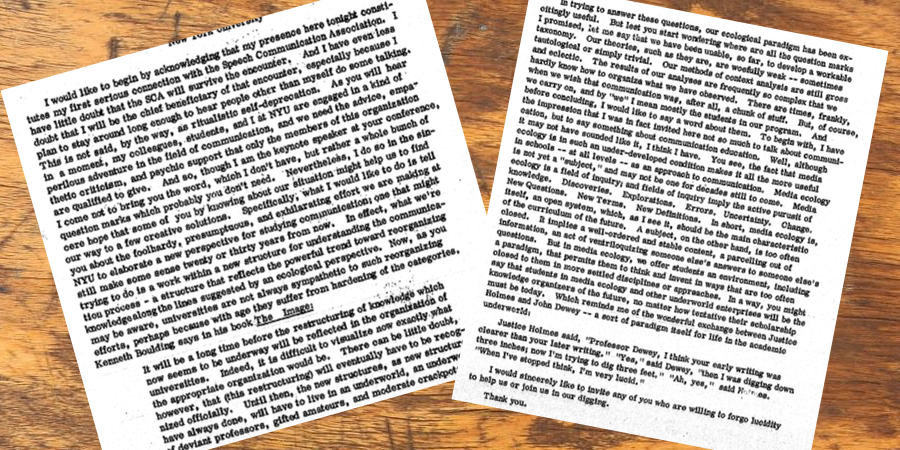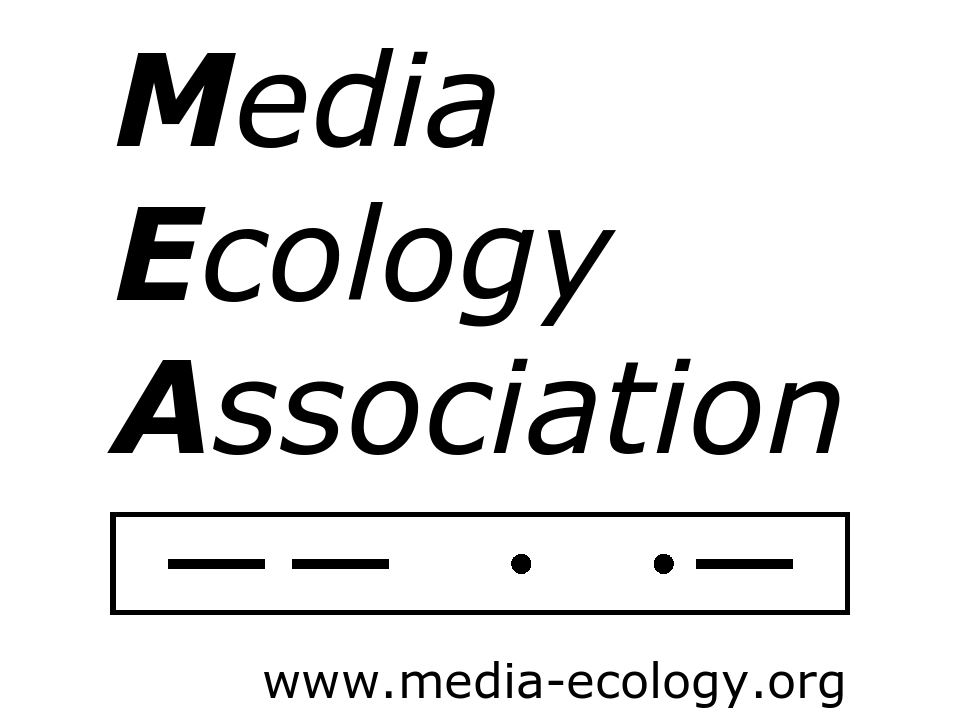25th Anniversary of the MEA & 50th Anniversary of Neil Postman’s SCA Keynote

An important media ecology anniversary has recently passed, just as another is upon us. In 1973, Neil Postman delivered the keynote address at the Speech Communication Association, the foreparent of our contemporary National Communication Association. It was in this address that Postman introduced the broader academic community to the phrase “media ecology,” and offered a typically cheeky and sharp description of our field, and of the work being done to organize scholarship around the idea. I’m struck, first, by this remark, found early in the address:
Specifically, what I would like to do is tell you about the foolhardy, presumptuous, and exhilarating effort we are making at NYU to elaborate a new perspective for studying communication; one that might still make some sense twenty or thirty years from now.
As the doors were closing on the media ecology graduate program at NYU, the seeds were being planted for this organization, the MEA, to succeed and surpass its progenitor. Monday, September 4, 2023 marks the 25th anniversary of the founding of the MEA when five of Neil Postman’s former students — Susan B. Barnes, Thomas F. Gencarelli, Paul Levinson, Casey Man Kong Lum, and Lance Strate — gathered and ushered it into being, proving out Postman’s hopes for his “foolhardy, presumptuous, and exhilarating effort,” and well beyond the twenty or thirty years from the evening of his keynote. This past July marked the 50th anniversary of said remarks, and we’re very proud to recognize this landmark moment in our field’s history and our community’s intellectual line.
The full text of the address is hosted by the United States Department of Education, for your reading pleasure. It was also published in our journal Explorations in Media Ecology in 2006 as “Media Ecology Education.” The MEA is proud to now host the audio files in .mp3 form, representing Parts I and II of the keynote, for your listening pleasure.
Although his books were translated into many languages, I can’t help but wonder what Postman would think about the dramatic international growth of our field. The Media Ecology Association is home to a robust group of scholars from a wide-range of countries and institutions around the globe, rapidly spreading beyond North America to great effect.
Finally, I’d like to point to a sentiment in his concluding remarks that points directly at the contributions of Postman’s students to the growth and success of the MEA. Postman outlines something of his take on education, saying:
Media ecology is a field of inquiry; and fields of knowledge imply the active pursuit of knowledge. Discoveries. Explorations. Errors. Uncertainty. Change. New Questions. New Terms. New Definitions. In short, media ecology is, itself, an open system, which, as I see it, should be the main characteristic of the curriculum of the future. A subject, on the other hand, is too often closed. It implies a well-ordered and stable content, a parceling out of information, an act of ventriloquizing someone else’s answers to someone else’s questions. But in media ecology, we offer students an environment, including a paradigm, that permits them to think and invent in ways that are too often closed to them in more settled disciplines or approaches. In a way, you might say that students in media ecology and other underworld enterprises will be the knowledge organizers of the future, no matter how tentative their scholarship must be today.
These sentiments live on in the ethos of the MEA, and I’d like to think that we’re operating as a sort of underworld enterprise of vibrant and engaged discoverers, explorers, error-makers, uncertainty-wranglers, change-agents, new question and term inventors, and more. It’s thanks to each of you that the MEA continues to embody this spirit. We hope you enjoy revisiting this landmark keynote address, especially if you’ve never listened to the audio files before.
With best regards,
Mike Plugh
President, Media Ecology Association
August 2023
